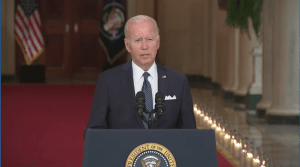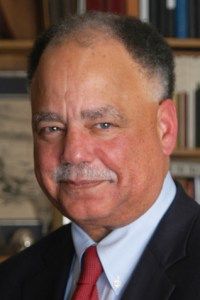Early Voting kicks off Juneteenth weekend

With the explosive good times in Harlem over Juneteenth weekend, it is no surprise that early voting for city council elections is off to a bit of a slow start this year.
Early voting started on Sat, June 17 and runs through Sun, June 25. Find pollsites and hours at nycvotes.org.
As of this Tuesday, the Board of Elections (BOE) has completed four days of early voting. So far the unofficial and cumulative number of votes is up to 18,293 across four boroughs. Queens (5,616) comes in with the highest number of voters, then Brooklyn (4,987) and Manhattan (4,558), and lastly, the Bronx (3,132).
Candidates in the city’s city council, District Attorney, and judgeship races were out beating the pavement and handing out their logos to encourage voters to show up at the polls this weekend. Some, like candidate for District 9 in Harlem Yusef Salaam, voted on the Junteenth holiday.
“People are still getting used to early voting here in New York. We are doing our part to help educate residents on where to vote. We hope that this process will eventually turn into an increase in voter turnout,” said Assemblymember Inez Dickens, who is also running for city council District 9 in Harlem. “At the end of the day, it is important for Harlemites to exercise their right to choose the best candidate.”
The use of rank choice voting in this year’s 51 city council elections, 21 of which are competitive, makes for an interesting experience. Rank choice voting means that voters can choose up to five candidates for a race in order of preference.
CLICK HER TO FIND YOUR POLLING LOCATION
Dickens nailed an endorsement from long-time supporter Mayor Eric Adams while Salaam teamed up with fellow candidate Assemblymember Al Taylor to entice one another’s voters to rank them.
“I am pumped and energized! Everywhere I go, voters are coming up to us excited and determined to vote for Team Taylor,” said Taylor in a statement. “The people of Harlem are hungry for change – they want a champion who will fight for affordable homes, safe streets, and good schools. And that’s exactly what I intend to do for our community.”
The race has not been without the usual scandals. Both Dickens and Salaam have come under fire from the media about their education.
Salaam, who does not have a doctorate but an honorary doctorate he received from Anointed by God Ministries Alliance & Seminary in 2014, has received some criticism for going by ‘Dr. Salaam’ at times. Dickens “studied real estate and land economics at New York University and later attended her studies at Howard University,” but didn’t graduate instead receiving certificates, she told to news outlets.
Election Day for the primary is on Tues, June 27. Polls are open 6am-9pm. The last day to request absentee ballots in-person is Mon, June 26.
Absentee ballots have to be postmarked by June 27 to be valid.
Ariama C. Long is a Report for America corps member and writes about politics for the Amsterdam News. Your donation to match our RFA grant helps keep her writing stories like this one; please consider making a tax-deductible gift of any amount today by visiting https://bit.ly/amnews1.
The post Early Voting kicks off Juneteenth weekend appeared first on New York Amsterdam News.




